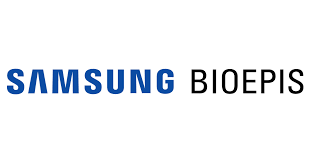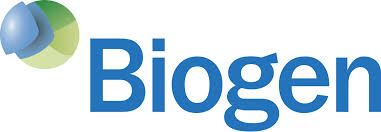- Bone Health
- Immunology
- Hematology
- Respiratory
- Dermatology
- Diabetes
- Gastroenterology
- Neurology
- Oncology
- Ophthalmology
- Rare Disease
- Rheumatology
FDA Approves First Ophthalmology Biosimilar: A Ranibizumab
Byooviz (ranibizumab) was approved for multiple ophthalmologic conditions, although market launch is at least 9 months away, owing to patent protections on the originator product.
FDA has approved a ranibizumab biosimilar (Byooviz, SB11) referencing Lucentis for the treatment of adults with neovascular age-related macular degeneration (wet AMD), macular edema following retinal vein occlusion, and myopic choroidal neovascularization. However, because of the licensing agreement between the biosimilar developers and the originator company, Genentech, Byooviz will not enter the US marketplace before June 2022.
The approval marks the first for an ophthalmology biosimilar in the United States. Biosimilars are copies of original brand products and have no meaningful clinical differences from these products, according to the FDA.
The product was developed by Samsung Bioepis of Incheon, Republic of Korea, and will be commercialized by Biogen of Cambridge, Massachusetts. A spokeswoman for Biogen said the June 2022 market entry date precedes the expiration of critical patents on the originator product and was achieved through a licensing agreement negotiated by the companies.
"We are working with our partners and stakeholders to make Byooviz available to patients in the United States. Given the variability of the biosimilars market and importance of providing the boradest access for patients, we want to ensure proper stakeholder connectivity and health care system readiness at the right time," said the Biogen spokeswoman, Duygu Lale Tanguler.
Lower-cost options for treatment of eye conditions are needed, according to the American Academy of Ophthalmology. Bevacizumab originator Avastin has been used for some of the same indications as the ranibizumab reference product because it is cheaper, a group spokesman noted in a recent interview.
Cost Comparison
According to a 2015 review, the cost for a 4 mL vial of Avastin (strength 100 mg) was $600, whereas a 0.23 mL vial of ranibizumab (10 mg/mL) was $1575. The cost of a 0.05 mL vial of aflibercept (Eylea; strength, 40 mg/mL) was $1418. Prices have increased since then.
Biogen and Samsung Bioepis did not provide information about the anticipated cost of Byooviz.
Although Avastin has been used in the treatment of ophthalmologic conditions, there has been controversy about payer endorsements of the use of biosimilar bevacizumab in these settings. Avastin is not indicated for the treatment of retinal disorders, but there has been enough clinical study of the use of Avastin for disorders of the eye to satisfy eye disease specialists.
Ranibizumab, aflibercept, and bevacizumab are antivascular endothelial growth factor inhibitors that prevent the uncontrolled growth of blood vessels that contribute to blindness or vision deterioration.
"In the United States, approximately 11 million people are affected with AMD and the prevalence of advanced AMD is growing due to the aging population. The approval of the first ranibizumab biosimilar in the US is a monumental milestone for people living with retinal vascular disorders in the US," said Kyung-Ah Kim, senior vice president and development division leader, at Samsung Bioepis.
The Biogen spokeswoman said Biogen and Samsung Bioepis intend to develop a biosimilar education program to help develop interest in using Byooviz among eye care specialists and patients and "to ensure that the ecosystem is ready for ranibizumab biosimilars at the appropriate time." Efforts will include working with payers. "Our focus is to ensure all patients have reasonable access to lower-priced treatments."
She said Biogen and Samsung Bioepis are "currently evaluating the potential launch timing for Byooviz and will provide an update in the future."
Samsung Bioepis and Biogen noted that Byooviz was approved for use in Europe on August 18, 2021, and the United Kingdom on August 31, 2021.
The companies said FDA approved the ranibizumab biosimilar based on a “totality of evidence” approach that considered analytical, nonclinical data, and clinical data.
A randomized phase 3 study of Byooviz compared efficacy, safety, pharmacokinetics, and immunogenicity of SB11 with the same qualities in ranibizumab reference product in patients with wet AMD.
Investigators said 705 patients were randomized equally to monthly injections (0.5 mg) of Byooviz or reference product and 634 patients received treatment up to week 48.
They said the mean change in best corrected visual acuity from baseline at week 52 was 9.79 letters for Byooviz vs 10.41 letters for the reference product (difference: –0.62, [90% CI: –2.092 to 0.857]).
The mean change in central subfield thickness was –139.55 μm for SB11 vs −124.46 μm for reference ranibizumab (difference: –15.09, [95% CI, –25.617 to –4.563]).
Investigators said treatment-emergent adverse events and immunogenicity were comparable between the 2 products at all points up to week 52.
This marks Samsung Bioepis’ fifth biosimilar approval in the United States. The others are infliximab (Renflexis), trastuzumab (Ontruzant), etanercept (Eticovo), and adalimumab (Hadlima). Eticovo and Hadlima have not yet been marketed.
Newsletter
Where clinical, regulatory, and economic perspectives converge—sign up for Center for Biosimilars® emails to get expert insights on emerging treatment paradigms, biosimilar policy, and real-world outcomes that shape patient care.


